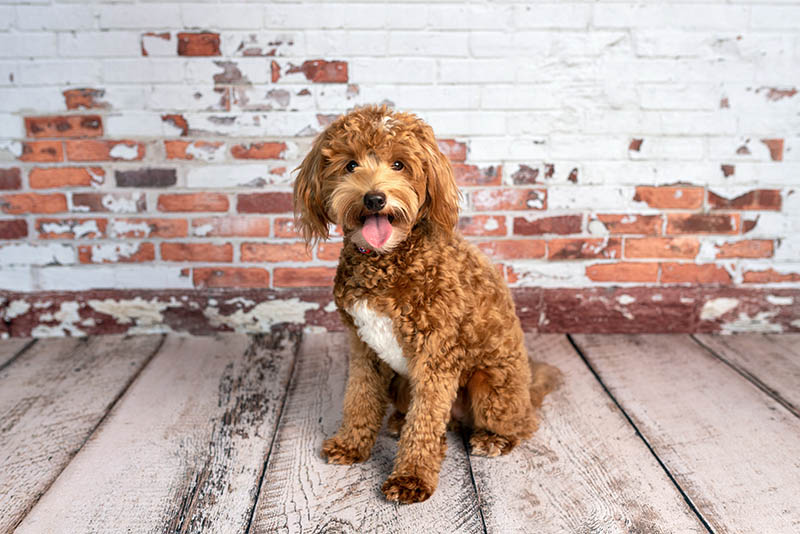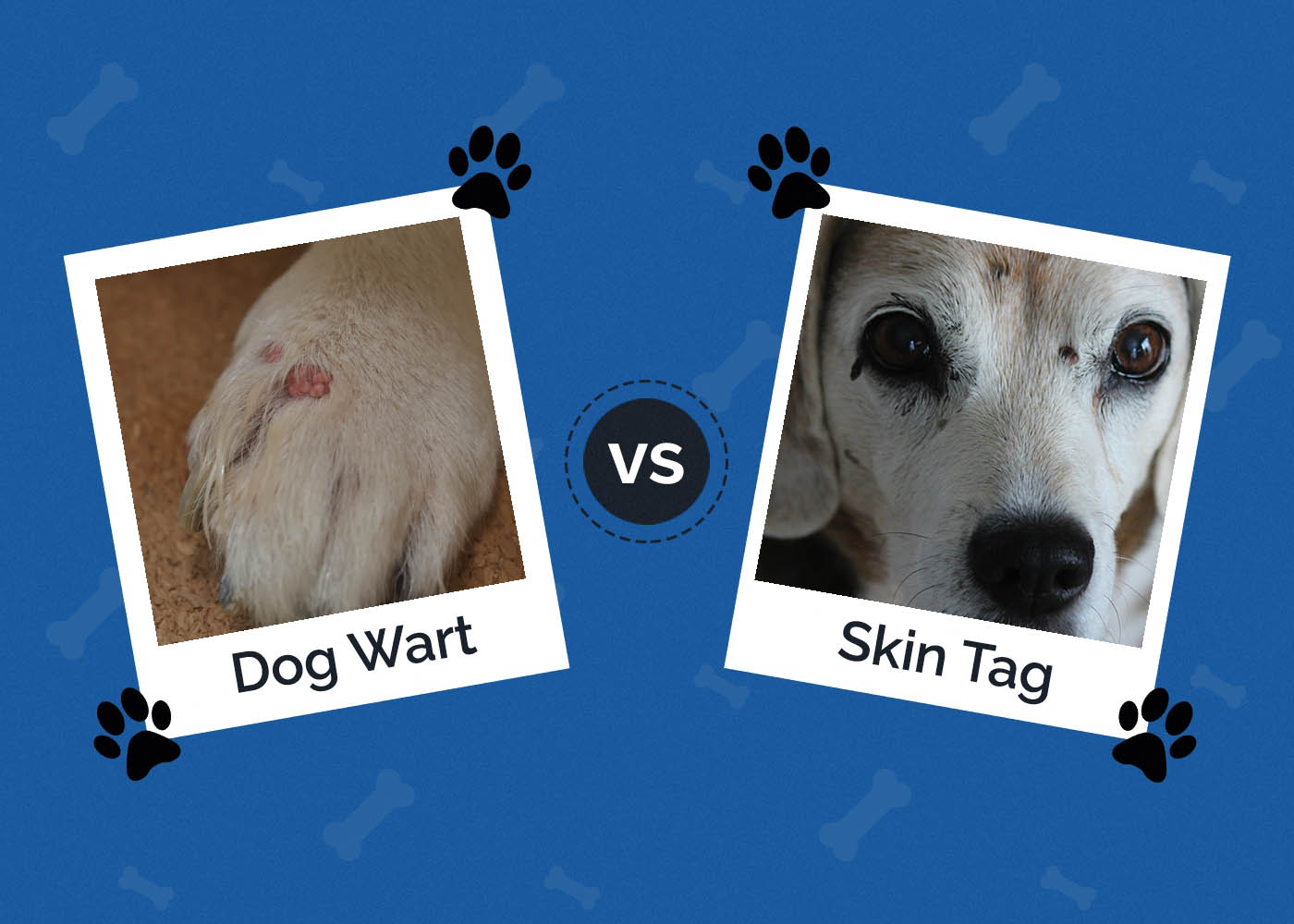Why Do Dog Farts Smell So Bad? 7 Vet Reviewed Reasons Explained
By Grant Piper
Updated on

It happens to all dog owners eventually. You will be sitting on the couch with your pup, enjoying a quiet moment when your dog will fart and fill the room with noxious gas.Just like for us humans, dog farts are caused by a build up of gas in the intestinal tract and occasional flatulence if perfectly natural and may even be humorous. However if your dog has excessive or very smelly farts, it can become annoying, disruptive, or even concerning. So, what is behind these toxic incidents of flatulence? There is a lot of science that goes into creating dreadful dog farts.
This article will examine seven common reasons that your dog’s farts may be smellier than normal and ways to reduce the rate at which your dog expels these terrible smells. Here are why dog farts smell so bad and what you can do about it.
The 7 Common Causes of Smelly Dog Farts
1. Hungry Bacteria
Farting is how gasses that have accumulated in the digestive tract are released. Essential bacteria that normally live there, break down food into nutrients that your dog can absorb and use and produce gas in the process. If these bacteria start producing too much gas or different types of gas based on different foods, it can lead to some stinky results.
Gut bacteria and your dog’s diet are intimately connected to most other reasons on this list. The longer it takes the bacteria in the gut to work, or the more food they have to eat, the more gas they will produce, and everyone knows what happens next. The bacteria are extremely sensitive to your dog’s diet and behavior, which you can alter to try to cut down on the amount of gas your dog produces.
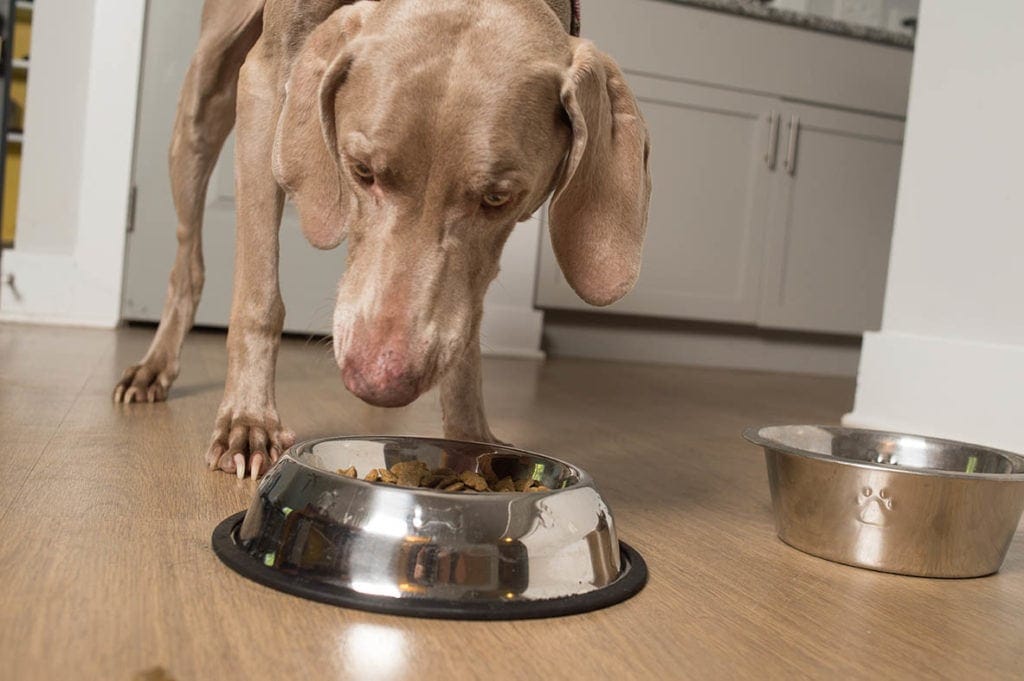
2. Table Scraps
Most dogs are more than happy to wolf down some table scraps, and many owners are happy to give them some. However, these tasty table treats can be causing some seriously foul excretions. Human food is often full of things like fat, salt, and sugar, which are not typically found in a natural dog diet. These things will take longer for your dog to break down, leading to a higher prevalence of gas. Some of these things can also supercharge the bacteria in your dog’s intestines, causing that gassy outpouring of awful smells that you hate so much. To reduce the smell factor of your dog’s farts, you should try cutting down on the number of table scraps that you feed your dog.
3. Eating Garbage
A common phrase says that you are what you eat. This can also be true for dogs. If your dog is eating garbage or stray things out of the yard, it could lead to some unwanted consequences. Your dog might like digging through the trash and eating suspicious things off the sidewalk, but these things could add to your dog’s digestive load. If your dog is eating more things their body can’t digest properly, the result is likely to be more smelly gas.
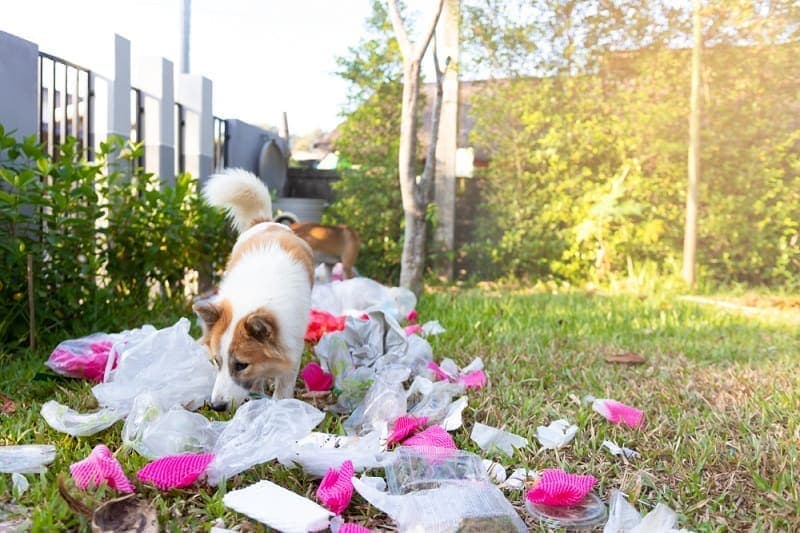
4. Not Enough Exercise
Dogs that are too sedentary, overweight, or both tend to produce more flatulence. Just like with people , exercise helps a dog’s digestive system work more efficiently. The longer food sits in the stomach and intestines, the more time bacteria have to feast on the food and create gas. If you find that your dog is lying around being a lump and also producing stinky farts, these two things could be connected.
5. Eating Too Quickly
If you have a dog that eats extremely fast, they could be ingesting a lot of air. When a dog scarfs down its food, it can swallow air which turns into air bubbles in their gut. These air bubbles can migrate into the intestines and cause gas. The higher the chance of gas, the more likely you are to experience a really awful smell. The less air a dog ingests by accident, the less likely they are to develop excess gas, which cuts down on the prevalence of eye-watering farts.
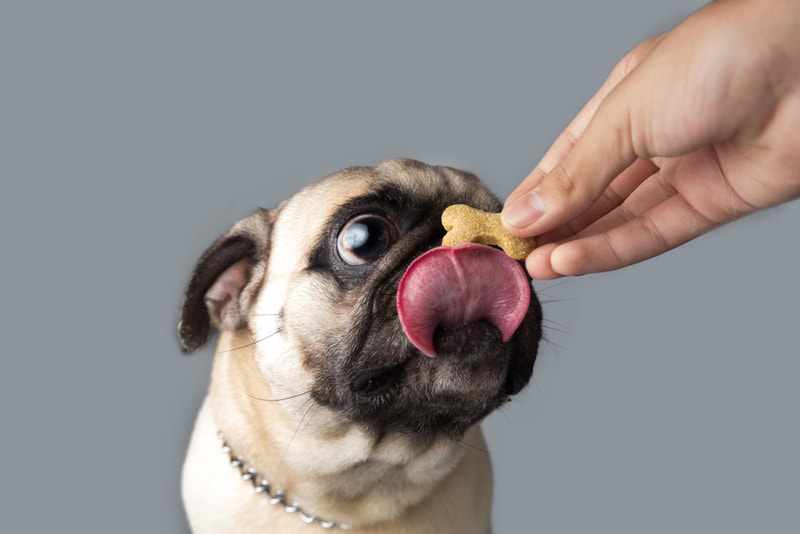
6. New Dog Food
One of the most common things that cause smelly dog farts is new dog food. People change dog food for a variety of reasons, but the change can cause unwanted smells. Since dogs typically eat the same food twice per day (or more), their guts get used to a specific food. Changing this food can shock your dog’s digestive system and lead to excess gas and smelliness. The good news is that often, once your dog’s digestive system gets used to the new food the stinky smells will reduce.
7. High Fiber Foods
High fiber foods, such as barley, oats, rye, beans, and other legumes, take longer to break down than other foods and tend to produce larger amounts of smelly gas. Reducing or eliminating these types of foods can help reduce your dog’s gassiness.
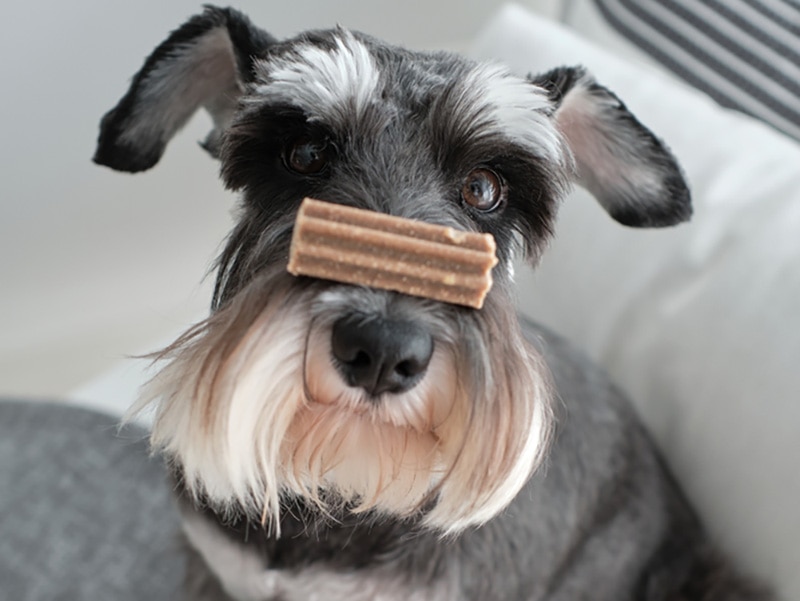
How to Reduce Farting
Farting is a natural part of life, and you cannot completely stop your dog from farting completely, but you can do some things to reduce the incidences of flatulence. The more you cut down on your dog’s rate of flatulence, the more likely you are to cut down on the strength and frequency of your dog’s smelly farts.
Slow Your Dog’s Eating
One easy way to try to reduce the number of farts your dog makes is to slow down their eating. There are numerous puzzle bowls that make it hard for your dogs to inhale their food that you can use to increase the amount of time it takes your dog to eat their kibbles. The longer your dog takes to eat, the less likely they are to swallow air while eating.
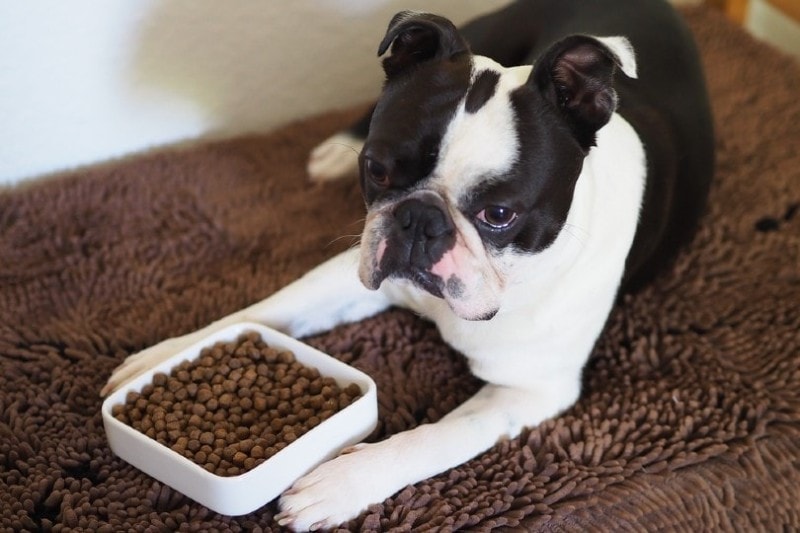
Try a New Diet
Sometimes particular foods can cause smelly farts. If your dog continues to make stinky flatulence that is becoming a problem, you can try switching their diet. We advise speaking to your vet for advice before you do this as your dog may have a food intolerance. Vets will help you work this out by a process of elimination and there are some specially formulated foods that can help with digestive issues. Supplements such as probiotics may also be recommended. Probiotics contain billions of helpful bacteria that can help the guts to be more healthy and help digestion.
Change Foods Slowly
Changing your dog’s diet quickly can cause gas. If you are planning on changing food, it is a good idea to phase in the new food and phase out the old food by mixing it. Similarly, don’t give your dog too many table scraps or feed them more frequently than they are used to. All of these things can change your dog’s diet, and the faster you change a dog’s diet, the more likely they are to experience gas.
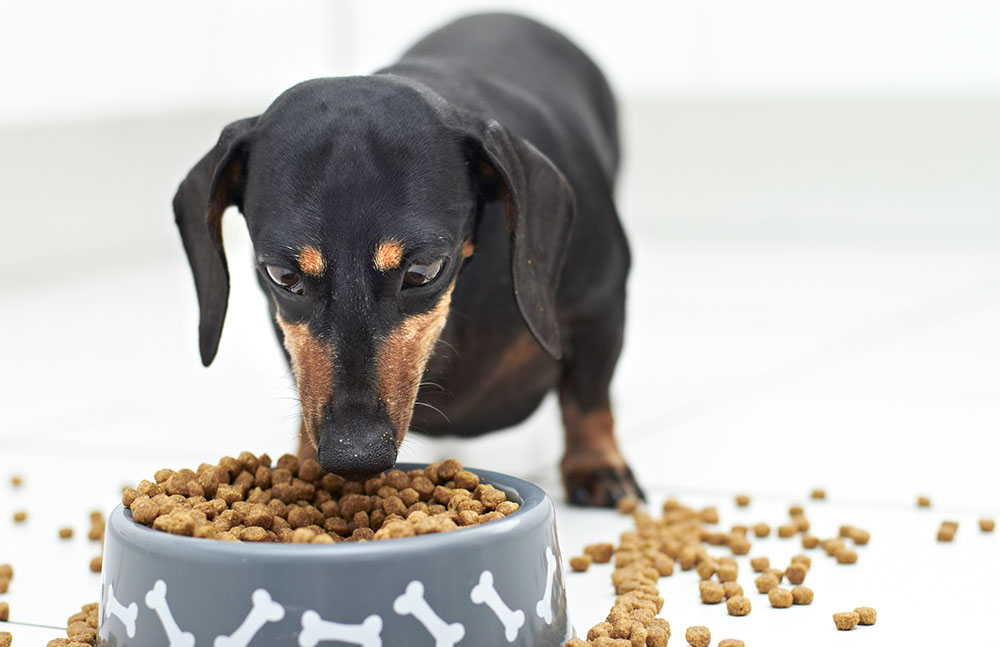
Speak to your Vet
In the majority of dogs, smelly farts are a sign of a dietary issue or intolerance. However occasionally they can be a sign of other conditions. So, particularly if your dog’s smelly gas is alongside other issues, such as diarrhea, weight loss or a sore tummy, be sure to consult with your vet for a thorough checkover.
Conclusion
Dog farts are a natural part of life, but they don’t have to be super smelly. Smelly dog farts are caused by bacteria in your dog’s intestines. These bacteria and the amount of gaseous byproduct they produce is mainly affected by your dog’s diet. Too many smelly farts can be a sign that all is not quite right in your dog’s digestive tract. It is impossible to eliminate smelly dog farts completely, but there are a number of things you can try to reduce their intensity and frequency.
See Also:
- Why Does My Puppy Fart So Much? 10 Vet-Reviewed Reasons
- Can Pugs Swim? How to Help Them Enjoy The Water
Featured Image Credit: san4ezz, Shutterstock





